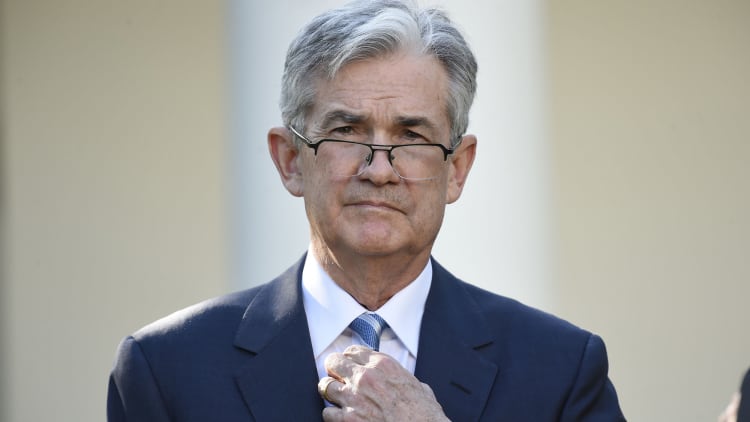Markets are skeptical tax reform will make it into law this year, as promised by President Donald Trump, or that the ultimate tax plan will look much like the current House bill.
"The market is telling us it's definitely 2018's business," said Art Hogan, chief market strategist at Wunderlich Securities. "There's too many battlegrounds here. Can it pass the House? Probably not in its current form."
After a day of wishy washy trading, stocks rallied late Thursday, with the Dow climbing 79 points a new record close of 23,515. The e a half point, the Nasdaq lost 1 point, and the Russell 2000 saw a 0.3 percent gain. But it was the bond market that was reflecting pessimism all day, with yields falling and the difference between shorter and longer-term yields narrowing to a new 10-year low.
Many aspects of the plan already have been embraced by the market, like a 20 percent corporate tax rate and repatriation of foreign earned profits, but there is concern that Congress will get mired in feuding over controversial aspects of the plan.

"Now the lobbying begins, and that 20 percent tax rate could turn into 25. That would make a lot of people unhappy," said Peter Boockvar, chief market analyst with Lindsey Group.
Among the most controversial proposals are a cap of $500,000 on mortgage deductions. The plan also allows the deduction of $10,000 on local property taxes but curtails deductions for state and local sales and income taxes, which affect residents of high-tax states like New York and California.
"The market is focused on a lot of the more controversial aspects of it and just reflecting skepticism for the ability for this bill to be passed and be acted upon on the timeline that has been laid out," said Mark Cabana, head of U.S. short rate strategy at Bank of America Merrill Lynch.
The plan did include an incentive for business investment that ends in five years, but it also limited things like interest deductions by corporations and entertainment expenditures. For individuals, it collapses the individual tax brackets from seven to four. The bill also left intact the deduction for 401(k) retirement plans, which had been under discussion for change.
Seth Carpenter, UBS chief U.S. economist, said his view remains that there will be no tax legislation this year after reviewing at the House bill, introduced Thursday. He does expect legislation next year but with a slightly higher corporate tax rate.
""By adding in a lot of other cuts, that just adds to the cost of the tax cut," Carpenter said. "Everybody loves tax cuts. It's the paying for it that's painful."
UBS economists say the plan needs to find something on the order of $3 trillion to $4 trillion in revenue, and that would require finding substantial revenue offsets by eliminating or reducing deductions and subsidies. They said the combination of the 20 percent corporate tax rate, the increase in family tax credit and the elimination of the alternative minimum tax are all costly, as will be the repeal of the estate tax, expected by 2024.
"Any group that loses their specific subsidy will likely oppose the plan," Carpenter notes.
Congress has agreed to a budget blueprint that limits the cost of a tax plan to $1.5 trillion over 10 years, and that target needs to be hit in order for Republicans to allow them to pass a bill without Democratic votes. But eliminating the state and local tax deduction will likely result in lost Republican votes in high-tax states.
Home building stocks were under pressure, on concerns about the mortgage deduction. The SPDR S&P Home Builders ETF, XHB, was down 2.5 percent.
In commenting on the plan Thursday, President Trump said the only company that won't be happy is tax preparer H&R Block. Its stock was down about 3 percent.
The action in the bond market perhaps showed the most skepticism. The yield curve — the difference between the yields of shorter and longer term bonds — has been flattening and some of that move was blamed on concerns about the tax plan.
"It's a little bit of skepticism about this plan and needing to see a bit more concrete signs of progress that this bill could move forward," said Cabana. "To the extent that does not happen, then that probably has to shift the market's thinking about the deficit outlook in the longer term."
The curve has been flattening for a while, and it narrowed even more when the Treasury announced a refunding Wednesday that suggested that it would increase issuance in the shorter end of the curve.
A flattening is when the short end rates and long end rates get closer together. For instance, the spread between yields and 10-year note yields Thursday was 74 basis points, a new 10-year low.
The flattening curve sometimes signals concerns about the economy, which would become a real worry if the 2-year yield rose above the 10-year. This phenomenon is viewed a recession signal.
WATCH: Powell Fed could be most important in decades



